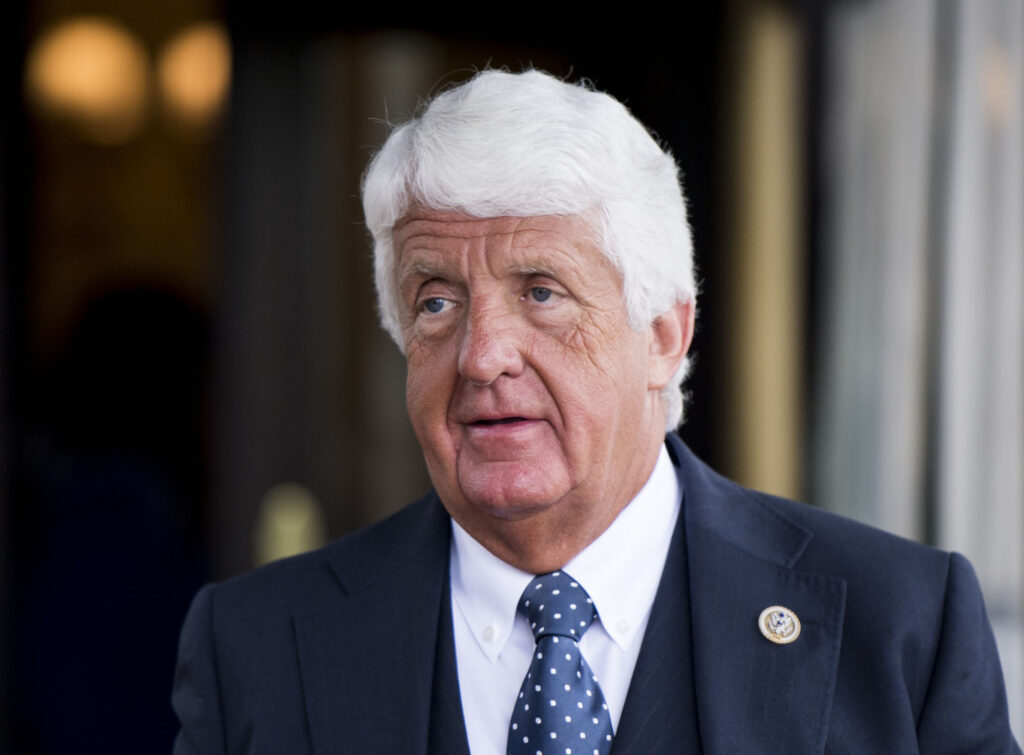Former Utah congressman Rob Bishop has resigned from the bipartisan Utah Independent Redistricting Commission in protest over what he calls the commission’s efforts to gerrymander urban voting districts to favor Democrats.
SALT LAKE CITY – In the wake of former congressman Rob Bishop’s abrupt resignation from Utah’s Independent Redistricting Commission (UIRC) on Monday, Utah Democrats are demanding that Gov. Spencer Cox intervene in the state’s redistricting process.
Specifically, Utah Democrat Hunter Davies is urging Cox to veto any political district maps other than the now controversial ones drawn by the members of the UIRC.
Davies is the director of redistricting operations for the state Democratic Party. He attributes Bishop’s quitting the bipartisan redistricting panel to the “independent commissioners refusing to split up communities of interest in Salt Lake County and dilute the votes of urban Utahns.”
At a public UIRC meeting Monday, Bishop charged that the commission was “designed to fail” because the its majority of members, who hail from urban areas, are refusing to recommend voting districts with a balance of urban and rural voters.
“I am frustrated with this process and I’m frustrated with what I’m hearing, frustrated with where we are going,” Bishop said Monday while announcing his resignation from the UIRC.
“I respect each of you as an individual,” Bishop told the other six members of the UIRC. “But I’m sorry. As a group, we suck.”
Bishop’s tirade came as the UIRC members were publicly reviewing boundary maps for Utah’s four congressional districts based on population data from the 2020 Census.
The majority of the commission’s members favored maps that would place most of Salt Lake and Utah counties in their own districts, while rural northern and southern Utah are also in separate districts.
Bishop favored an alternative approach that would assign portions of the Salt Lake Valley to three of Utah’s four congressional districts, along with large areas of the southwest, central and southeast portions of the state.
The UIRC is required to submit the four congressional district maps to the Utah Legislature for approval by Nov. 1, along with maps for state legislative districts and school boards.
Under state Proposition 4, which was narrowly approved by Utah voters in 2018, the once-a-decade process of redrawing statewide political boundaries is now a combined effort by the traditional redistricting committee made up of state lawmakers and an independent panel of appointed citizen representatives.
Those bodies are required to cooperate to provide a greater degree of transparency and fairness to the redistricting process.
But Bishop accuses the redistricting commission of attempting to gerrymander congressional elections to favor Democrats by creating voting districts that are primarily urban.
Possibly at stake in the current redistricting process is the Republicans’ continued dominance of politics at all levels of government in Utah. The GOP currently has super-majorities in both the state House and Senate, with margins of 59–16 and 23–6 respectively, and similar majorities in most cities and counties.
Local lawmakers Sen. Scott Sandall (R-District 17) and Rep. Joel Ferry (R-District 1) are among the 20 members of the Legislative Redistricting Committee, which will ultimately decide on the new political boundaries.
Left-leaning public interest groups that originally supported Proposition 4 – including the Alliance for a Better Utah and the Better Boundaries group – have joined Utah Democrats in condemning what they refer to as Bishop’s temper tantrum.
But Utah lawmakers, including Utah House Speaker Brad Wilson, are supporting Bishop, saying that his stand clearly demonstrates that political boundaries are best drawn by elected representatives of the people.

